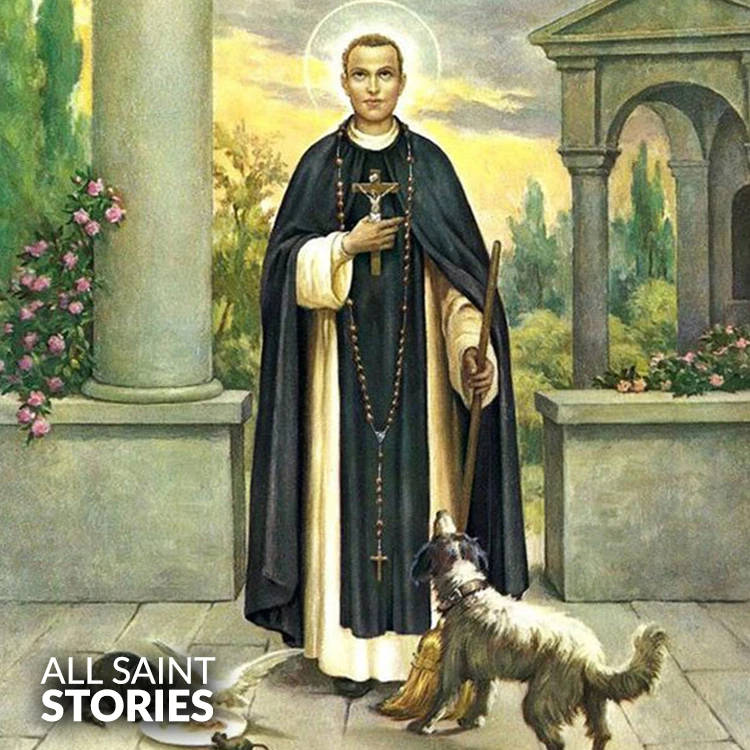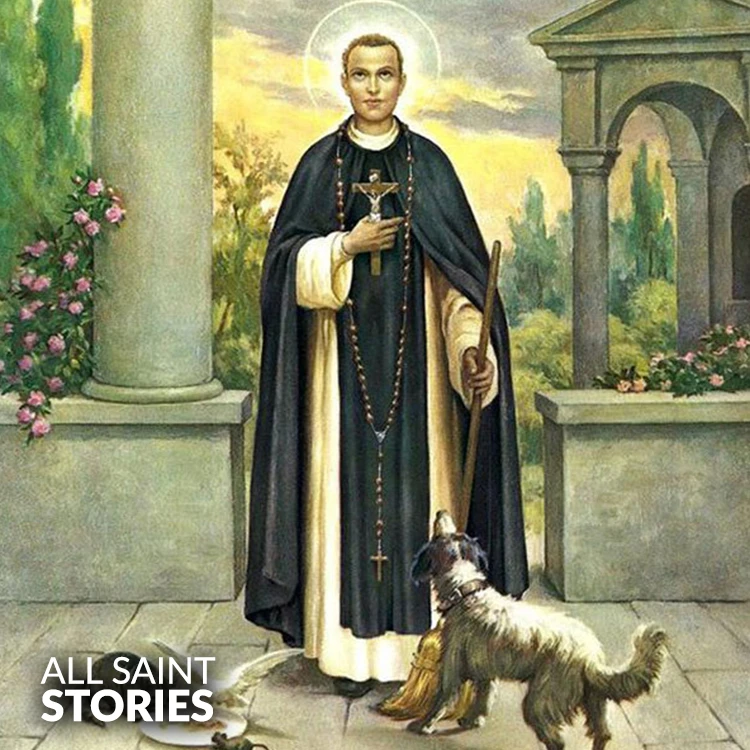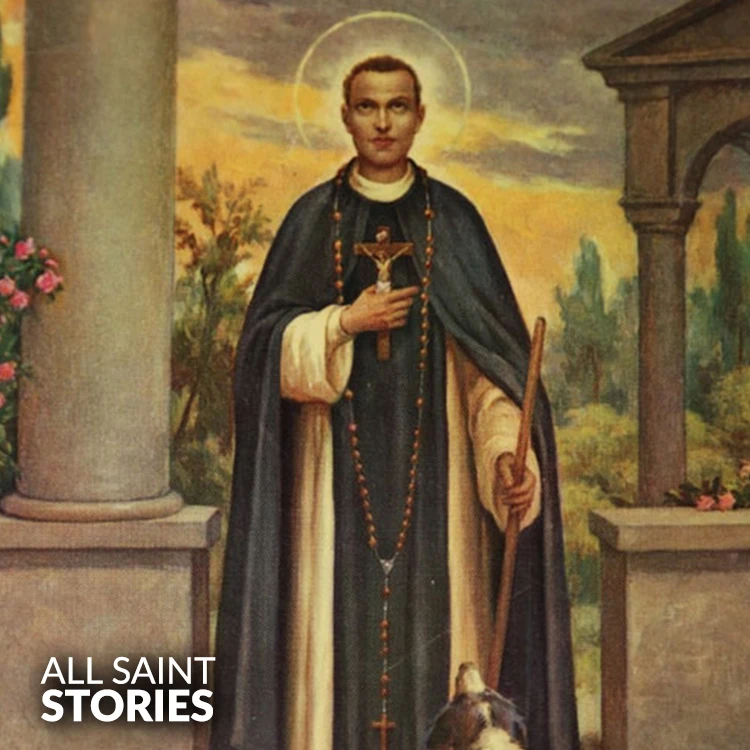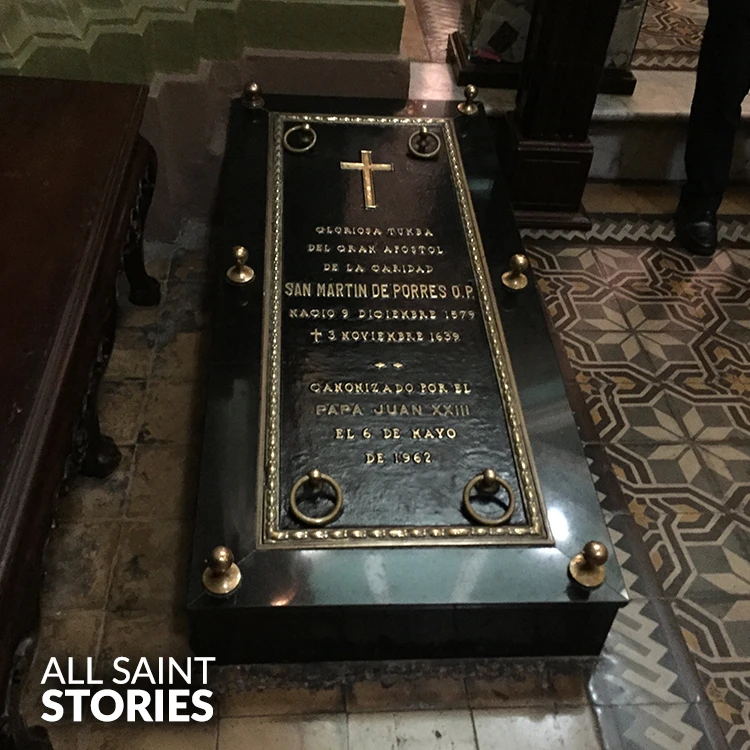O Saint Martin de Porres, humble servant of God and devoted follower of Christ, help us to emulate your example of charity, compassion, and service to the poor and sick. Intercede for us in our struggles and lead us toward healing, unity, and peace. Amen.
ST. MARTIN DE PORRES
ST. MARTIN DE PORRES

St. Martin de Porres was a humble Dominican lay brother born in Lima, Peru, in 1579. Despite facing racial prejudice, he served the sick, poor, and abandoned with profound compassion. Known for miraculous healings and humility, he was canonized in 1962 and is the patron of mixed-race people and those seeking racial harmony.
Martin de Porres Velázquez was born in Lima, Peru, on December 9, 1579, to a Spanish nobleman, Don Juan de Porres, and Ana Velázquez, a freed Afro-Peruvian woman. His mixed-race heritage subjected him to significant social stigma and discrimination, even from childhood. Although he was the illegitimate child of a nobleman, his father initially refused to recognize him due to racial prejudice. Martin grew up in poverty with his mother and younger sister. Despite the hardships, he developed a deep sense of spirituality and compassion early in life.
From a young age, Martin felt a strong calling to religious life. He apprenticed as a barber-surgeon, where he learned about herbal medicine and caregiving. These skills later shaped his lifelong dedication to the sick and poor. At age 15, he sought to join the Dominican Order but was initially only accepted as a volunteer servant due to his mixed ancestry. His exemplary behavior, humility, and unwavering dedication to the community eventually earned him the status of a lay brother in 1603, a significant milestone given the racial biases of the time.
Martin lived a life of extreme asceticism and spiritual discipline. He was known for miraculous occurrences, including bilocation, levitation, and instantaneous healing. Though offered higher positions within the monastery, he declined them, choosing instead to remain in service to the infirmary and the poor. He tirelessly cared for the sick, regardless of their race or status, and is remembered for embracing lepers and beggars with unconditional love.
His kindness extended beyond humans—Martin was said to have communicated with animals and treated them with the same care as people. He founded an orphanage and a children's hospital and established social services that reflected his deep concern for the downtrodden. His nickname, “Martin of Charity,” reflects his relentless pursuit of compassion and justice for all.
Martin died on November 3, 1639, at the age of 59, and was buried in the Dominican Convent of the Rosary in Lima, which became a site of pilgrimage. Reports of miraculous healings and intercessions continued after his death. Pope Gregory XVI beatified him in 1837, and he was canonized by Pope John XXIII on May 6, 1962, becoming the first Black saint of the Americas.
His feast is celebrated annually on November 3. Today, he is venerated as the patron saint of mixed-race people, barbers, innkeepers, public health workers, and those promoting racial harmony and social justice. His life serves as a beacon of humility, charity, and unwavering faith.
Video Not Found
The information on this website is compiled from various trusted sources. While we aim for accuracy, some details may be incomplete or contain discrepancies.
If you notice any errors or have additional information about this saint, please use the form on the left to share your suggestions. Your input helps us improve and maintain reliable content for everyone.
All submissions are reviewed carefully, and your personal details will remain confidential. Thank you for contributing to the accuracy and value of this resource.
Credits & Acknowledgments
- Anudina Visudhar (Malayalam) – Life of Saints for Everyday
by Msgr. Thomas Moothedan, M.A., D.D. - Saint Companions for Each Day
by A. J. M. Mausolfe & J. K. Mausolfe - US Catholic (Faith in Real Life) – Informational articles
- Wikipedia – General reference content and images
- Anastpaul.com – Saint images and reflections
- Pravachaka Sabdam (Malayalam) – Saint-related content and insights
We sincerely thank these authors and platforms for their valuable contributions. If we have unintentionally missed any attribution, please notify us, and we will make the correction promptly.
If you have any suggestion about ST. MARTIN DE PORRES
Your suggestion will help improve the information about this saint. Your details will not be disclosed anywhere.
© 2026 Copyright @ www.allsaintstories.com





 English
English
 Italian
Italian
 French
French
 Spanish
Spanish
 Malayalam
Malayalam
 Russian
Russian
 Korean
Korean
 Sinhala
Sinhala
 Japanese
Japanese
 Arabic
Arabic
 Portuguese
Portuguese
 Bantu
Bantu
 Greek
Greek
 German
German
 Dutch
Dutch
 Filipino
Filipino